How often do you analyse the tone of your internal communication? What about emails from senior leaders to the organisation – do you get heavily involved as a professional communicator or offer them advice and guidance and leave them to craft their own messages?
 Today an article caught my eye from the Telegraph newspaper here in the UK. I spotted it via Twitter and thought I’d share it with you.
Today an article caught my eye from the Telegraph newspaper here in the UK. I spotted it via Twitter and thought I’d share it with you.
In it, Lucy Adams, the former Director of Human Resources at the British Broadcasting Corporation (BBC), admitted staff “hated her ‘pompous and sterile’ emails, which lacked any humanity” and she accused the corporation’s managers of losing the trust of employees.
(Pompous means “affectedly grand, solemn or self-important” and can also imply conceitedness).
So who was to blame? Well, according to the Telegraph, she claimed senior managers “lawyered out any personality in their communications.”
How?
Quoting an article in The Times, the piece stated Ms Adams said executives alienated their staff, with one employee from news even telling her that her group emails were “crap” and they should ask someone else to write them.
The Telegraph quotes her from an employment conference in London last week as saying: “I was slightly taken aback, as this was precisely what I had done. My emails were usually written with several other people – people in HR, people in legal, people in the press team and people in internal communications.”
What do you think?
Where does accountability lie for effective emails or written communication from leaders? From the description I’ve shared above, it’s clear there were a lot of cooks involved across various departments – perhaps too many spoiling the broth?
A real bugbear of mine is wholly ghostwritten internal communication for leaders. I discussed this at one of the roundtable discussions at the Institute of Internal Communication conference I attended a couple of months ago.
Some of the professional communicators around the table saw no problem whatsoever in ghostwriting or “dramatically tweaking” written communication from senior leaders, particularly those going to the whole organisation.
(Ghostwriting means when something has been written by someone else but sent in their name. See my IC glossary for more terms).
So what’s my problem with it?
 It’s not real.
It’s not real.
Imagine if an employee approached that senior leader or your CEO and wanted to talk to them about something they’ve supposedly written. (It does happen!). What reaction would they get?
One would hope they were close enough to what had been sent in their name to be able to have an effective conversation and answer any questions about certain points they raised.
But what if they didn’t? The perfectly positioned, polished and poised prose would nosedive spectacularly if it became apparent they hadn’t written it. (Tweet this)
When is it good to intervene/advise?
I’ve deliberately used the word intervene here because sometimes that’s necessary. Yes it would be fantastic to have beautifully written, on message and sparkling copy produced every single time a senior manager wanted to communicate with an organisation. But the reality is that sometimes they do need a helping hand, and that’s our role.
But there’s a clear line to be drawn and that’s all about authenticity.
Over the years I’ve worked on behind-closed-doors change projects with Boards as a comms business partner, where you know all that’s going on.
I’ve seen them sometimes forget in their business-as-usual communication that certain information or timelines cannot be shared yet. That’s often for very good reason; be that impending redundancies, union negotiations, sensitive discussions or business plans that could influence share price.
Therefore, the role of an effective IC business partner is to be that guiding force and capture such incidences and stop them before they happen.
However, it’s getting harder. Particularly because senior leaders are taking to more informal ways of communicating, such as enterprise social networks and choosing to “work out loud.”
This means instead of having a planned discussion about what they are going to communicate, they go ahead and do so anyway.
Again, that’s a tricky one as I don’t think that’s a bad thing. I welcome authentic communication from leaders, it’s long overdue and like a breath of fresh air when you see it start to happen in an organisation.
There’s also nothing wrong with them admitting mistakes – they are human after all – sharing a diary of thoughts that appears rough and ready, and above all, realising the whole point of wanting to communicate with employees is to start two-way conversations.
It’s harder to have a discussion with someone, start to get to know them or trust them when you know nothing about them.
But when messages are augmented to the point of no return, when they become sterile, pompous or “too corporate,” you alienate your readers and they might as well remain in the drafts folder.
So what can you do?
How to build trust
The Edelman Trust Barometer is a firm favourite resource of mine for many reasons and I’ve written about it numerous times. One of the gems in there is a study on the attributes of trust – something Ms Adams cites in the Telegraph article as being lost by employees, and one would assume hindered, rather than helped, due to the ineffective communication.
It revealed 16 specific attributes that build trust. How do your leaders and your organisation measure up against this list?
They are listed under the following headings, known as performance clusters, and ranked in order of importance: Engagement, Integrity, Products and Services, Purpose, Operations.
 1.Engagement
1.Engagement
Listens to customers needs and feedback
Treats employees well
Places customers ahead of profits
Communicates frequently and honestly on the state of its business
2. Integrity
Has ethical business practices
Takes responsible actions to address an issue or crisis
Has transparent and open business practices
3.Products and services
Offers high quality products or services
Is an innovator of new products, services or ideas
4.Purpose
Works to protect and improve the environment
Addresses society’s needs in its everyday business
Creates programmes that positively impact the local community
Partners with NGOs, Government and 3rd parties to address societal needs
5.Operations
Has highly-regarded and widely admired top leadership
Ranks on a Global list of Top Companies
Delivers consistent financial returns to investors
I’m interested to know your take on this issue. I’d love to hear what you’re doing in your organisation – how effective are your managers at communicating? What works for you and for them?
I am going to leave you with a top tip to make the most of effective leadership communication. If you want to know more, do Tweet me @AllthingsIC or comment below and I’ll consider writing a follow-up article with advice if people would be interested in reading it.
Get to know your leaders/business partners’ preferred communication style.
What does this mean?
It means analysing and making smart choices about the channels they use, based on how they are most comfortable and natural (i.e. authentic). For example a short video may be better suited to their style than a forced blog or email. It may give them a chance to display their personality and genuine concern/excitement about a topic, in a way that their written communication can’t.
Thanks as ever for stopping by and I welcome your comments,
Rachel
Article published: 16 July 2014.
Author: Rachel Miller.











Please add me to your email noticication list.